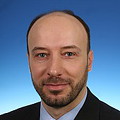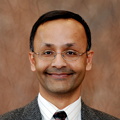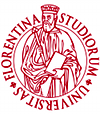
Tamer Başar
University of Illinois
at Urbana-Champaign
Multi‐Agent Networked Systems with Adversarial Elements
Monday September 8, 2014 at 9:00am
The recent emergence of multi-agent networked systems has brought about several non-traditional and non-standard requirements on strategic decision-making, thus challenging the governing assumptions of traditional Markov decision processes and game theory. Some of these requirements stem from factors such as: (i) limitations on memory, (ii) limitations on computation and communication capabilities, (iii) heterogeneity of decision makers (machines versus humans), (iv) heterogeneity and sporadic failure of channels that connect the information sources (sensors) to decision units (strategic agents), (v) limitations on the frequency of exchanges between different decision units and the actions taken by the agents, (vi) operation being conducted in an uncertain and hostile environment where disturbances are controlled by adversarial agents, (vii) lack of cooperation among multiple decision units, and (viii) lack of a common objective shared by multiple agents. These all lead to substantial degradation in performance and loss in efficiency if appropriate mechanisms are not put in place. The talk will identify the underlying challenges, particularly those that are brought about by the adversarial nature of the environment, and offer solutions in some specific contexts.

Samuel Kounev
Universität Würzburg
Quantitative Evaluation of Service Dependability
in Shared Execution Environments
Wednesday September 10, 2014 at 2:30pm
The inability to provide dependability guarantees is a major challenge for the widespread adoption of shared execution environments, based on paradigms such as virtualization and cloud computing. The provided level of dependability (availability and reliability) is a major distinguishing factor between different service offerings. To make such offerings comparable, novel metrics and techniques are needed allowing to measure and quantify the dependability of shared execution environments, e.g., public cloud platforms or general virtualized service infrastructures. In this talk, we first discuss the inherent challenges of providing service dependability in shared execution environments in the presence of highly variable workloads, load spikes, and security attacks. We then present novel metrics and techniques for measuring and quantifying service dependability, specifically taking into account the dynamics of modern service infrastructures. We consider both environments where virtualization is used as a basis for enabling resource sharing, e.g., as in Infrastructure-as-a-Service (IaaS) offerings, as well as multi-tenant Software-as-a-Service (SaaS) applications, where the whole hardware and software stack is shared among different customers. We focus on evaluating three dependability aspects: i) the ability of the system to provision resources in an elastic manner, i.e., system elasticity, ii) the ability of the system to isolate different applications and customers sharing the physical infrastructure in terms of the performance they observe, i.e., performance isolation, and iii) the ability of the system to deal with attacks exploiting novel attack surfaces such as hypervisors, i.e., intrusion detection and prevention. We discuss the challenges in measuring and quantifying the mentioned three dependability properties, presenting existing approaches to tackle them. Finally, we discuss open issues and emerging directions for future work in the area of dependability benchmarking.

Sanjoy Baruah
University of North Carolina at Chapel Hill
The Modeling and Analysis of Mixed-Criticality Systems
Tuesday September 9, 2014 at 9:00am
(joint program with FORMATS)

Henrique Madeira
University of Coimbra
Quantitative safety assessment:
experiments and field measurements
Wednesday September 10, 2014 at 9:00am
(joint program with SAFECOMP)





